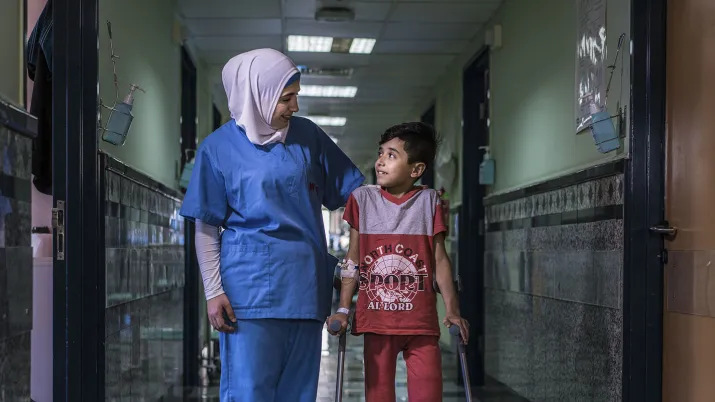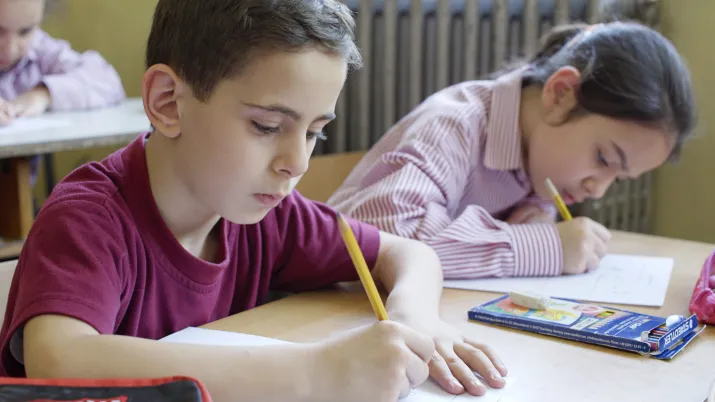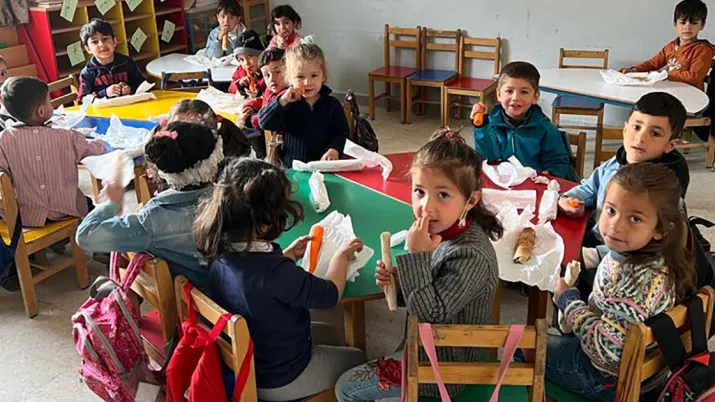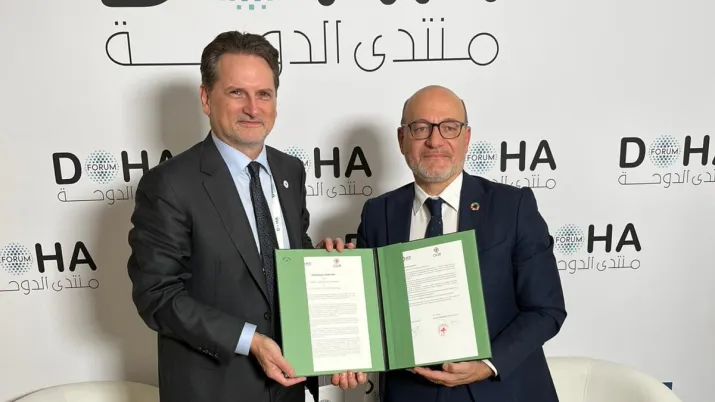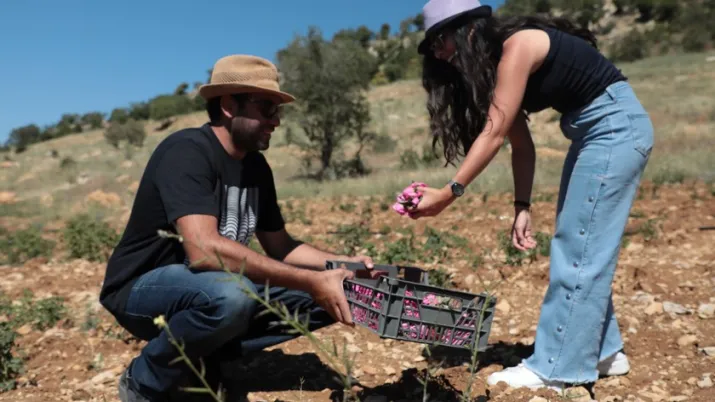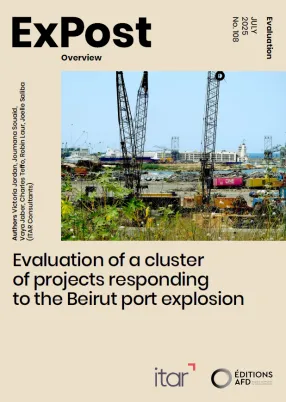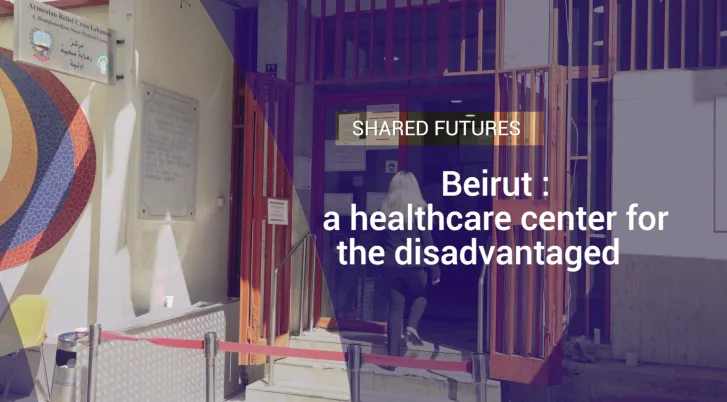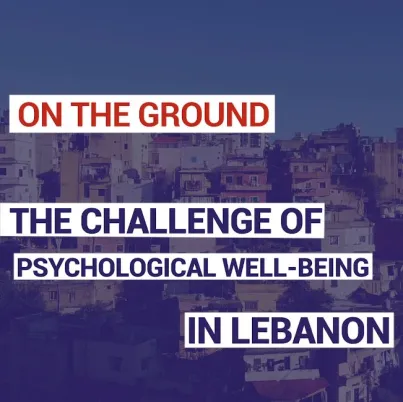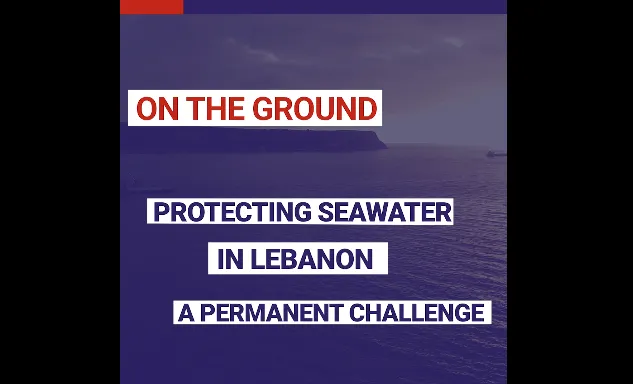Share the page
Lebanon
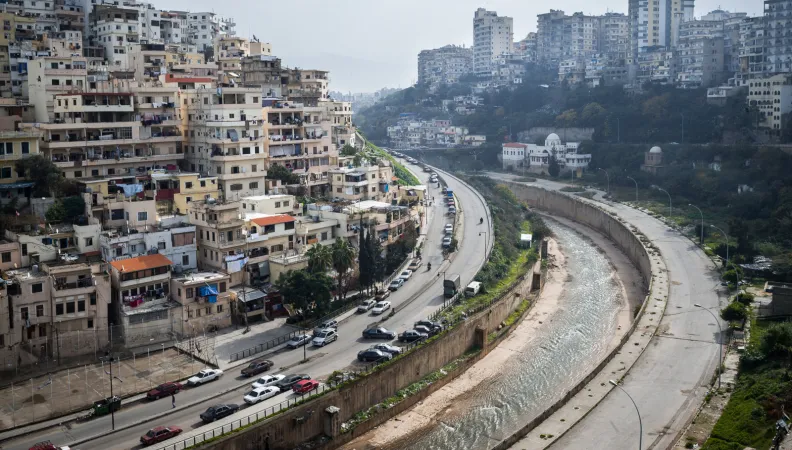
Lebanon, a gateway to the Middle East, is experiencing an unprecedented multidimensional crisis, worsened by the recent conflict. The breakdown of public services threatens hard-won development gains and deepens socioeconomic inequalities. In line with public policy implementation, AFD Group supports Lebanon by assisting vulnerable populations, promoting sound management of natural resources, and preserving social cohesion.
Context
Lebanon is a small country of 10,452 km² located in the heart of the Middle East. Despite its many assets and a relatively high Human Development Index (0.73 in 2019), it is currently grappling with multiple overlapping crises. The socioeconomic and financial crisis that began to surface in 2019 has been compounded by the COVID-19 pandemic, the Beirut port explosion of 4 August 2020, and the armed conflict of 2024. This complex context calls for an approach that addresses urgent needs while laying the groundwork for long-term recovery.
AFD Group’s engagement in Lebanon has a twofold objective: to help the country respond to these crises and to support the emergence of more inclusive and effective governance. Its efforts focus in particular on:
- The most vulnerable populations, whether Lebanese or refugees, with particular attention to women and young people.
- Change‑makers who can contribute to shaping the Lebanon of tomorrow.
AFD works with a wide range of stakeholders, particularly Lebanese civil society actors, to pursue five strategic objectives: improving access to education, vocational training, and employment; strengthening access to healthcare; expanding access to water services; promoting inclusive territorial development; and supporting economic and financial reforms.
Lebanon is also the primary country of operation for Expertise France. Likewise, until the 2019 crisis, Proparco was very active, driven by the dynamism of the country’s private sector.
AFD’s Lebanon office reports to the Middle East Regional Office.
Our approach
AFD and Lebanon: reducing vulnerabilities
AFD Group continues to support education and vocational training for vulnerable populations, with the aim of empowering young people and helping them build prospects in Lebanon. Special attention is given to French-language education. These efforts help maintain access to schooling and training, with a focus on integration into the labor market, which has been severely affected by the crises.
AFD supports the development of technical training supply.
For example, the Maharat Li Loubnan 2 project offers Baccalauréat professionnel (vocational high school diploma) programs and short-cycle training courses that benefit 2,200 people. AFD has also funded the construction of a new building at the National Conservatory of Arts and Crafts (CNAM) in Beirut, designed to accommodate 5,800 students. The Group also supports entrepreneurs and small and medium enterprises to preserve employment.
AFD promotes school retention among the most vulnerable children through the implementation of a school meal program that benefits 6,000 students. Its contribution to the multi-donor Transition and Resilience Education Fund (TREF) supports the implementation of the Ministry’s priority reforms and helps strengthen the public school system, which has been particularly affected by the crisis.
In Lebanon, strengthening the public health system is a priority. To this end, AFD partners with civil society organizations and international actors to support Lebanese institutions in implementing the national strategy. For example, AFD, Première Urgence Internationale and the Pierre Fabre Foundation support 29 primary healthcare centers, and AFD also partners with the International Committee of the Red Cross to back two of the largest public hospitals, Rafic Hariri University Hospital and Tripoli Governmental Hospital. Support includes rehabilitation of infrastructure, skills strengthening of health personnel, and financial coverage for vulnerable patients.
The European Institute for Cooperation and Development provides training for health workers in public hospitals and health centers to improve the quality of care. Mental health is given special attention, with support for the national mental health program and the creation of a university diploma in partnership with the World Health Organization and Saint Joseph University.
AFD also contributes to structural reforms, such as modernizing the blood transfusion system, strengthening pharmaceutical supply chains, and assisting public hospitals to meet accreditation standards set by the Ministry of Health.
In Lebanon, the water sector faces technical, institutional and commercial challenges. Since 1999, AFD has intervened to support infrastructure rehabilitation and sector governance, with guiding principles of sustainable resource management and ensuring quality service for all.
With European funding, AFD has supported the revision of the national strategy and the development of a sector recovery plan. It also assists the Ministry and regional water authorities in implementing required reforms. As a lead donor, AFD helps coordinate the sector and foster public policy dialogue. AFD also finances the rehabilitation and construction of infrastructure (reservoirs, networks, pumping stations, solar energy systems) across the country, including in remote rural areas.
In rural areas, territorial development and sustainable agriculture generate employment and bolster food security. Within this framework, AFD finances various projects aimed at expanding employment and local agricultural production, conserving biodiversity, and preventing disaster risk, while reinforcing social cohesion. AFD also supports Lebanon in its agro‑ecological transition to ensure more sustainable management of its natural resources.
In towns and cities, priority is given to economic revitalization and social cohesion through a “double dividend” neighborhood approach, combining infrastructure development (housing, access to services, shared public spaces) and strengthening social ties. Local residents are central to interventions, taking part in governance and investment choices.
AFD also supports decentralized cooperation projects between French and Lebanese local authorities.
AFD Group supports Lebanon in economic and financial reforms, notably public procurement reform and budgetary transparency. Interventions are designed to establish sustainable management of public resources and improve governance in the public sector so that it can respond effectively to the population’s needs. AFD has aided the Ministry of Finance in its budgetary formulation, in the creation of the Public Procurement Authority, and in training public administrations in these matters. AFD and Expertise France also support independent civil society actors who lead innovative initiatives, promoting public accountability and transparency, including media outlets.
Below, find the country's projects, news, publications, and contact details in one click.
News & Press Releases
Publications & Media
Key figures
-
76 projects financed or implemented by AFD Group between 2019 and 2024
-
405 million euros committed by AFD Group between 2019 and 2024
-
29 % of our financing between 2019 and 2024 had climate co benefits

